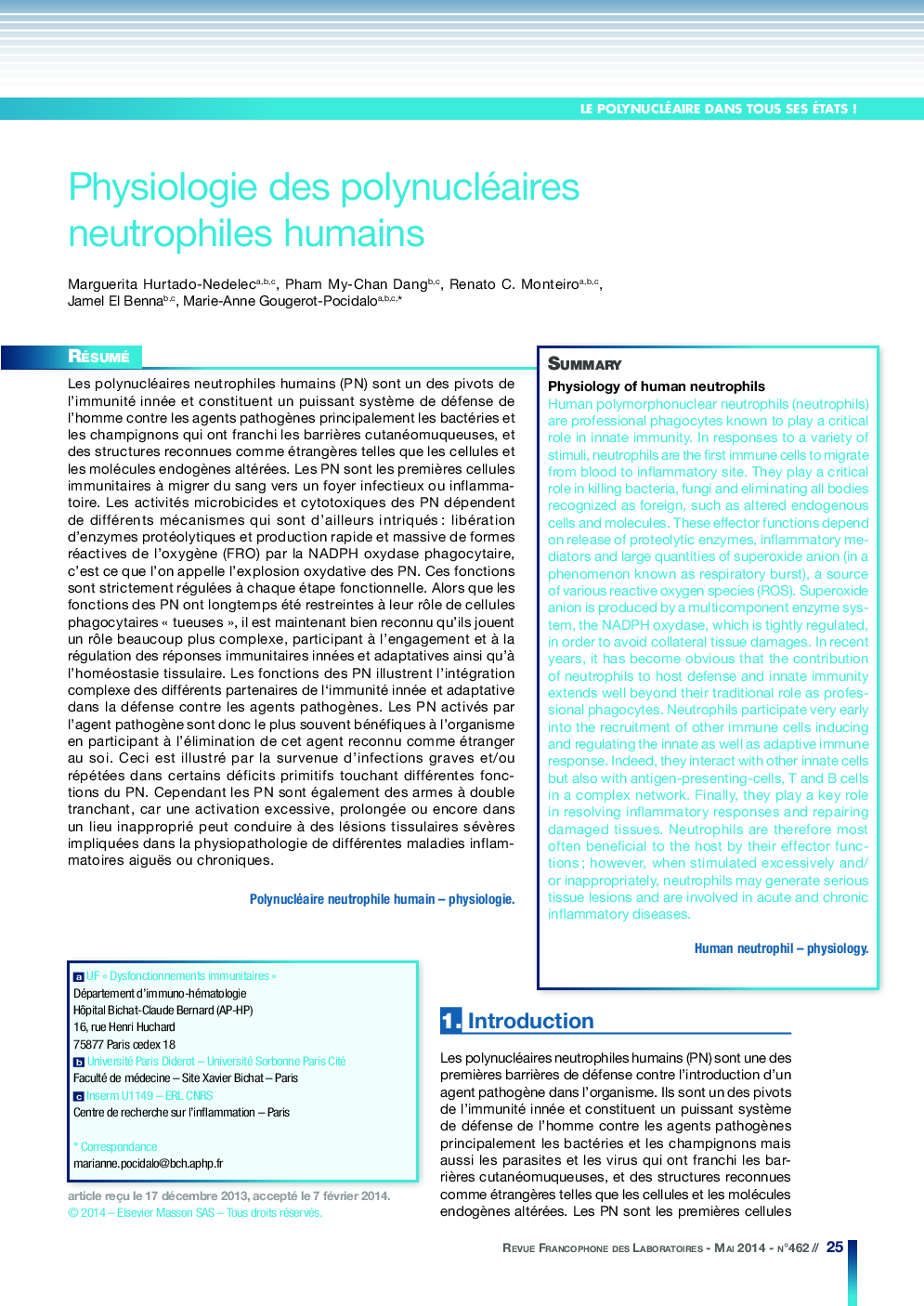| Article ID | Journal | Published Year | Pages | File Type |
|---|---|---|---|---|
| 7649294 | Revue Francophone des Laboratoires | 2014 | 14 Pages |
Abstract
Human polymorphonuclear neutrophils (neutrophils) are professional phagocytes known to play a critical role in innate immunity. In responses to a variety of stimuli, neutrophils are the first immune cells to migrate from blood to inflammatory site. They play a critical role in killing bacteria, fungi and eliminating all bodies recognized as foreign, such as altered endogenous cells and molecules. These effector functions depend on release of proteolytic enzymes, inflammatory mediators and large quantities of superoxide anion (in a phenomenon known as respiratory burst), a source of various reactive oxygen species (ROS). Superoxide anion is produced by a multicomponent enzyme system, the NADPH oxydase, which is tightly regulated, in order to avoid collateral tissue damages. In recent years, it has become obvious that the contribution of neutrophils to host defense and innate immunity extends well beyond their traditional role as professional phagocytes. Neutrophils participate very early into the recruitment of other immune cells inducing and regulating the innate as well as adaptive immune response. Indeed, they interact with other innate cells but also with antigen-presenting-cells, T and B cells in a complex network. Finally, they play a key role in resolving inflammatory responses and repairing damaged tissues. Neutrophils are therefore most often beneficial to the host by their effector functions ; however, when stimulated excessively and/ or inappropriately, neutrophils may generate serious tissue lesions and are involved in acute and chronic inflammatory diseases.
Related Topics
Physical Sciences and Engineering
Chemistry
Analytical Chemistry
Authors
Marguerita Hurtado-Nedelec, Pham My-Chan Dang, Renato C. Monteiro, Jamel El Benna, Marie-Anne Gougerot-Pocidalo,
